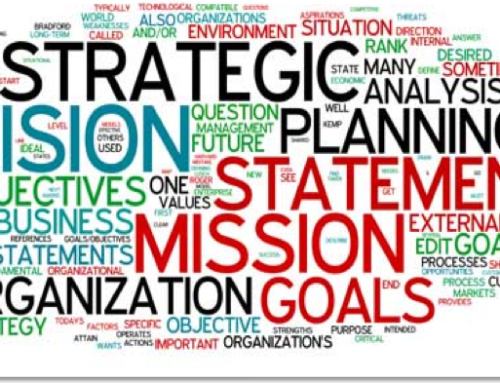Guest Post by Shakirah Dawud
Publicity experts swear by becoming an author of something.
But if you know your stuff, you can become a valuable resource in your field anyway.
Image: Mirari Erdoiza via Fotopedia, CC 3.0
1. Be honest about what you don’t know.
This is the top, numero uno takeaway, a no-brainer, and something even (especially?) the generously brain-endowed often bury.
If you realize you’ll never stop learning, you’ll stay humble and human, and we readers like that.
2. Talk to and reference the experts.
Even the experts refer to the experts.
There’s always someone out there who knows a bit more about something, or whose mental rays hit it at an angle you couldn’t conceive.
Seek out authorities not just for learning purposes, but to position yourself at a physical or virtual table with a knowledgeable person.
That alone is both respectable and respected.
Share your encounter with us readers. We’ll thank you for introducing us to someone whose knowledge you trust on a topic, and stick around to meet more like them.
3. Tell everyone’s story.
Dig deep to find more than just the widely-held views.
If you have an opinion of your own, go ahead and be biased, but not insulting.
Use pedantic asides only humorously. It’s more interesting this way, and we come away certain you know more than what you told us.
You’ll probably find you’ve knocked up against a treasure trove of writing ideas, too.
4. Ask people to ask you about what you know.
We all have references we love to skip Google to query when something specific’s driving us nuts.
If you have enough confidence to become one of them, just add a box with a link to your e-mail that says, “Ask me about X.”
Just remember to apply the first three points to your answers, as well as any applicable qualifiers and disclaimers.
Oops””did you just get knocked over by a stampede of burning questions?
See if people are willing to pay for certain answers.
5. Learn to write for different readers and venues.
This one is the reason research fellows who can explain to four year-olds why the sky is blue get so many expert points from me.
If your own website is geared toward a technical readership level, try writing a news release for the general public.
Practice makes perfect on this one, but I know I almost always click on Yahoo! News headlines that read, “Largest cave in the world discovered yesterday” with promises of eye candy.
Draw physical and historical comparisons.
Use pictures and humor.
Milk human interest for all it’s worth.
Do this right, and a number of us will read, engage, subscribe, buy… or simply (ultimately?) be inspired.
Plus, your name is now indelibly linked with your favorite topic.
Don’t stop there!
Invite us over for special sessions with you: brief visual presentations, Q&As, and more build and shape your rep.
Failing all that, of course, you can always write a book.


![[EVENT]: PR Hacks for Small Biz (online)](https://shonaliburke.com/wp-content/uploads/2021/06/FB-Ad-1200x800-01-01-01-Copy-500x383.jpeg)








[…] Post: 5 Ways To Write Like An Expert Without Writing A Book by Shakirah Dawud […]
@mshoults Well, I think most of us are a much farther away from being pestering novices than we think we are. I like to use http://helpareporter.com to get in touch with people who are experts in one subject or another. Telling people you want to write a story using their name is all it takes, generally, to put you on a good list. But if you’re shy about maintaining your acquaintance after that even though you still have a lot you’d like to learn, try buying a book or attending a webinar of theirs, and asking questions from those contexts. Now for the “do as I say, not as I’m constantly reminding myself to do” disclaimer…
Great advice, Shakirah! I’ve been working on becoming a better writer and you offer some practical tips for improving the craft. I especially like tip #2, talk to the experts. I just have difficulty catching up with many professionals because they’re often so busy. What’s the balance between gleaning knowledge and being a pestering novice?
[…] Write Like An Expert Without Writing A Book: 5 ways to act like you know in print without the book. (WUL) […]
Nice guest post Shakirah. Admitting your limits: what you know, don’t know and just your individual stance on something, that’s such good advice. You can’t be all things to all people, too hard and you’ll never get there. Sharing the expert.. or the everyone’s story opinion can only add to the writing. If it was all me, all the time.. it’s more of what I call writing to hear yourself type and it just doesn’t connect with the reader. I am all for humor, and with that my “Ask me about X?” right now would be Disneyworld or Vampire Diaries as I could talk or write for days. ;-) FWIW.
@3HatsComm Lol, Davina, I’m imagining the box set up on your website: “Ask me about Disneyworld!” Hey, it could work! And for most of us, writing to hear ourselves type will bore both us and our readers to tears. I did say most, though. Some people’s favorite subject is themselves, and it surprises them that it’s not everyone else’s. Sorry to be responding so late!
Thanks for the tips Shakirah! I view myself as an average writer at best. But that is fine. I am an expert reader and that is what counts! =)
@HowieSPM It’s my belief that good writers are such because they read good writing.
@HowieSPM I’m with Davina, Howie: An expert reader makes for an expert writer more often than not. I’m sure you’ve proved yourself above average more than once, whether you realized it or not! Thanks for commenting, and apologies for the late response.